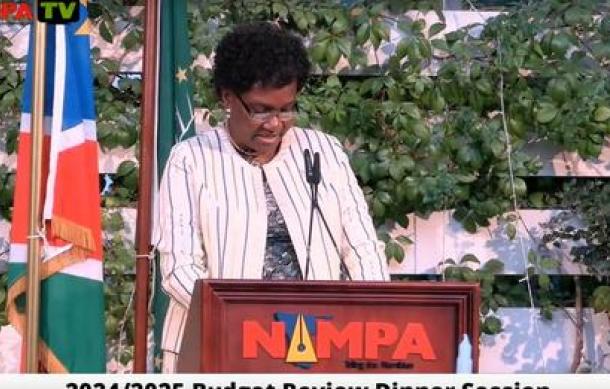
Higher Education, Training, and Innovation Minister Itah Kandjii-Murangi has said the development of professional and technical human resources, research, science, technology, and innovation infrastructure is the cornerstone of the transformation of the Namibian economy.
Kandjii-Murangi made the remarks during a high-level tertiary education funding budget review dinner held in the capital on Thursday.
She said that while almost half of the world’s population is made up of young people, it is also evident in Namibia, where the youth constitute 60% of the population, adding that it is for this reason that special attention has to be paid to engaging and imparting the requisite skills to the youth.
“Young people are the future leaders. In a globalised and interconnected world, modern development theories tell us that innovative human capital is our competitive leverage; thus, they are valuable assets and trustees of our posterity. They are, like everybody else, custodians of sustainable development, a role for which they should and must be prepared,” she said.
The minister noted that in the last few years, access to higher education and the diversity of programme offerings at universities have expanded significantly, citing that, due to the increase in student numbers, it is imperative to increase the provision of state-of-the-art infrastructure and facilities.
However, one of the strategies that institutions of higher learning can adopt to cater for large numbers of students from ordinary and advanced subsidy school levels is to consider introducing bridging programmes, she suggested.
Kandjii-Murangi said her ministry is cognizant of the fact that Namibia has gone through a challenging period characterised by droughts, economic difficulties, and the COVID-19 pandemic.
This has impacted Namibians’ ability to enrol their children in higher education institutions and, in turn, put pressure on the Namibia Student Financial Assistance Fund (NSFAF) in terms of demand for financial support.
In 2022, the number of students receiving financial assistance from NSFAF stood at nearly 15,000 at a cost of N$1.6 billion, while in 2023 that number grew to approximately 22,000 at a cost of N$2.1 billion.
The current budget allocation to NSFAF is N$2.3 billion, which represents an increase of N$200 million from the 2022–2023 budget, she concluded.
The review was held under the theme ‘Funding Modalities in the Age of AI, Emerging Sectors, 4IR, and 5IR’.





